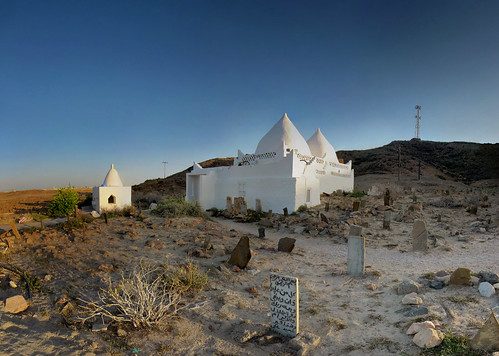Oman’s unique story reveals examples of great moral strength, courage, heroism, maritime skills, scholarship and hard work that have together moulded the Sultanate into its present form. By drawing our attention to the noble efforts of distinguished Omanis, historians have provided us with a deeper understanding of the great wealth of human experience that is at the foundation of modern Oman.
An understanding of Oman’s place at the heart of the Middle East and its relationship with neighbouring countries is central to understanding the international position of Oman today as well as its internal dynamics.
Oman occupies the far south-eastern corner of the Arabian Peninsula, its geographical boundaries clearly defined by nature from earliest times.
The earliest Stone Age settlement discovered in Oman is in the Wattaya district and dates back more than 10,000 years.
Babylon and Assyria were among the first empires to control the Asian land trade from the Arabian Gulf to the eastern shores of the Mediterranean. Later the Persian Empire expanded to gain influence over a vast area and control the region’s trade.
The rule of the Imams in Oman began in the eighth century C.E. Ibn Masoud was elected as the first imam in 751 and his reign lasted for four centuries until 1154. The Oman of the Imams was in the Nabhan period between the thirteenth and fifteenth centuries AD; attempts to revive the Imamate in Oman were renewed in the fifteenth century but these attempts failed.
Between 1498 to 1507, after Portugal had occupied the trading ports of East Africa along with Aden, the Portuguese stranglehold, which lasted for more than a century and a half, was to fail because of Oman’s spirited resistance and the election of Imam Nasir bin Murshid to the Imamate in 1624 AD.
The Portuguese possessions in India suffered tremendously from the Omani strikes. Portuguese and Omanis engaged in bloody battles for the control of East Africa, until the entire East African shore from Mombassa to Kilwa fell under Omani control. In 1698 AD the Omanis conquered Mombassa and then entered Pemba, Zanzibar and Patta, Mozambique was the only country that resisted the Omani Arab fleet, and it stayed under Portuguese control until the twentieth century.
Despite repeated attempts from 1737-1744 AD, the Persian invasions were not to achieve their objective of subduing Oman because of the valiant resistance put up by the Omanis. Oman’s heroic resistance staved off the Persian invasion in that period and their ultimate victory is owing to the leadership of Ahmed bin Said Al-Busaidi who succeeded in ousting the Persians from Oman and was elected Imam in 1744 AD,
In 1970 His Majesty Sultan Qaboos bin Said, the Crowning Glory of Oman, inaugurated the renaissance and modern age of Oman
Copyright © Demetrios the Traveler


No comments:
Post a Comment